Embarrassment of Riches
By Robert Bound
The Queen of Versailles, dir. Lauren Greenfield, 2012
Embarrassment of Riches
Robert Bound
Why do the wealthy confess for Lauren Greenfield’s lens?
April 25, 2025
Money, power and the power of money flow through much of Lauren Greenfield’s work. The photographer and documentary filmmaker came to fame with 2012’s much-loved The Queen of Versailles, a wily reckoning with the American dream framed by asking who would dare to build America’s largest single-family house. The answer was David and Jackie Siegel—and the why was hubris. The Siegels’ time-share fortune was washed away in the 2008 financial crash, and Greenfield’s camera first captures extreme wealth, then its making, in a riveting and dispiriting inspection of the time-share racket, and finally its ruination, analogized perfectly by the vast, unfinished house, with its pools and fountains reduced to quagmire and bog. Greenfield, though, stayed the distance to capture the complete arc of that family’s fortune and loss and, at the time of release, did the media rounds with Jackie Siegel herself (David died in April 2025), to tell the story of an updated Ozymandias in Florida.
Greenfield’s magical mix of charm, grit and an ability to lean into serendipity (what filmmaker would not want the super-wealthy subject of their film to hit the skids as they shoot?) has always been matched by her eagle eye for illuminating subjects, both as overall editorial conceits and individual characters. In The Kingmaker (2019), Greenfield enjoyed unparalleled access to Imelda Marcos, her son, Bongbong—now president of the Philippines, as was his father, Ferdinand (the rule that proves the film’s title)—and those opposing the Marcoses’ epic corruption. Greenfield utilizes time, access and perhaps the perfect length of interviewer’s pause—that deadly weapon—to get the best (or worst) from the Philippines’ self-declared First Lady. Imelda, immune to introspection, wafts around Manila dishing out cash to the voters she helped make poor under the rule of her late husband, while pleading poverty in a style only the upper echelons can master. Money talks again, all too literally.
If money is a social issue, then it’s of a theme with the rest of Greenfield’s work, much of which is concerned with what America sees when it looks in the mirror. Generation Wealth (2018), the TV series Bling Dynasty (2015) and the short Kids + Money (2008) are recognisably from the same lens as Thin (2006), a moving examination of anorexia, and Social Studies (2024), a TV series that explores youth addiction to screens. For Greenfield, our cultural obsessions with class and status are never far from the frame.
From left: Kids + Money, dir. Lauren Greenfield, 2008; The Kingmaker, dir. Lauren Greenfield, 2019; The Queen of Versailles, dir. Lauren Greenfield, 2012
Your subjects appear so natural in front of the camera. How do you prepare them, if at all?
For Social Studies, I laid it out as much as I could. I told my subjects, “Okay, we’re going to be looking at how social media impacts the lives of teenagers, and for that I need access to your phones and your social media and I need to follow you in your lives.” It seemed like a social experiment to me, and that’s how I framed it and filmed it. What I don’t do is to try to know what the beginning, middle and end of a film are going to be. I go in really open-minded, and this can frustrate the people I want to fund my work, because I don’t know what the ending is going to be. But with The Queen of Versailles, for example, I knew that this family was an incredible window into wealth and the American dream and aspiration, and that with all their housekeepers and nannies from all these different countries, it was a strange microcosm of globalization but complete with drama and bigger-than-life visuals.
And also in-built drama courtesy of that huge family and huge amounts of money sloshing around?
Yes, there was so much there, there was drama. I knew it was a great kind of petri dish for me to play in. But I couldn’t have guessed the Siegels would go on the skids and lose their house. It would turn out that they were actually more like the rest of us than I could have ever imagined, but just larger than life. Of course, now in the Trumpian era, we see how they were prescient for what was to come in terms of our values.
The teenagers in Social Studies sometimes say they just want to be rich and famous over being an astronaut or a firefighter or anything else—and power and money seem so interlinked in the America of today. Do you feel politics is enacting or encouraging a simplistic version of success?
Right now, we’re in such a chaotic moment that I feel like I can’t boil it down. I do feel that looking up to money and success and that version of the American dream helped with the original kind of admiration of Trump—even though it was ironic, because he was born rich and didn’t make his own money and had very mixed success. But in a way, it speaks more to image and propaganda, which was something that really came up in The Kingmaker. Watch that right now and it’s really chilling, because it’s about the return to authoritarian regimes and the power of propaganda. One of the things that I’ve looked at throughout my work is image, and one of the themes in Generation Wealth is “fake it till you make it,” and we have a lot of fake it, we have a lot of black is white and white is black and fake-news kind of stuff.
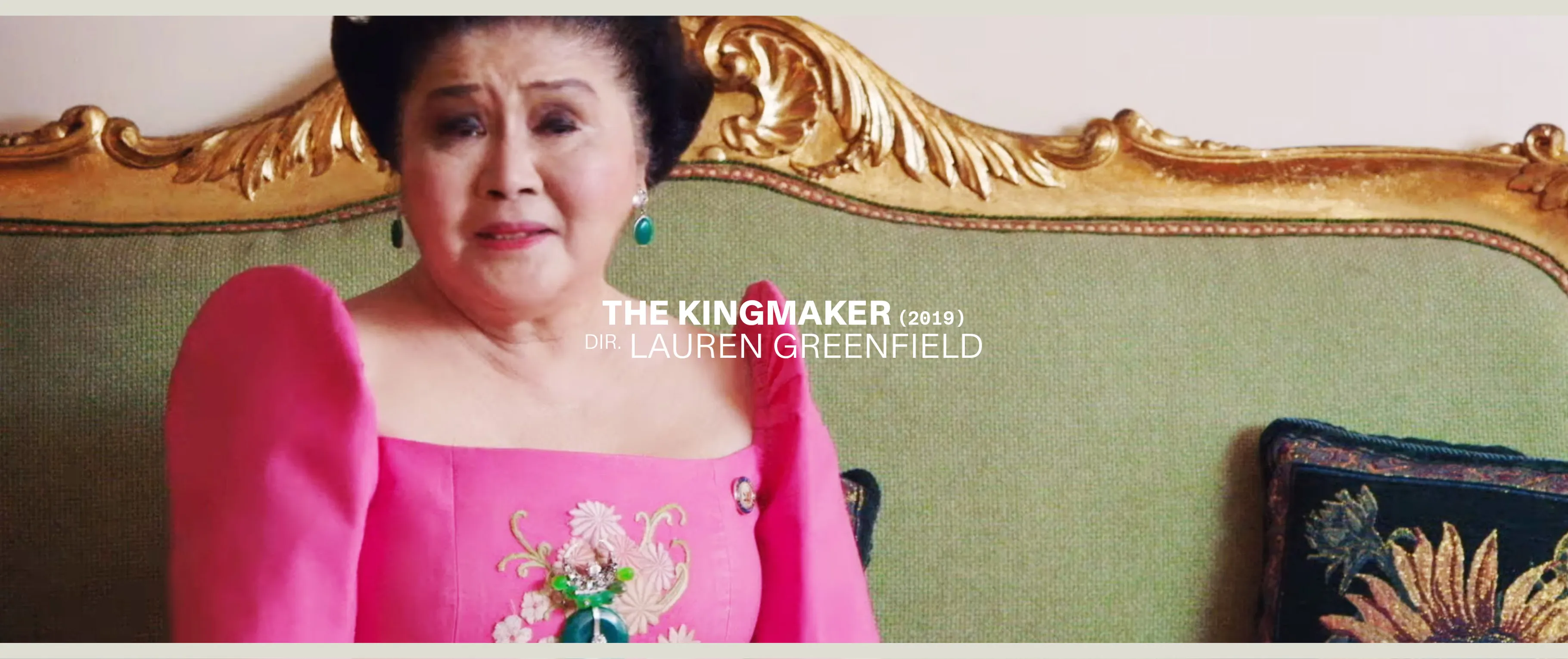
So you can see some purposeful patterns emerge?
I think so, and these patterns are certainly a big theme in The Kingmaker, where the Marcoses completely rebrand themselves, going from dictators who stole $5 [billion] to $10 billion from the Philippines to convincing poor people that they’re going to help them. Trump too. This idea that Trump was going to help the working class, and then of course he gets in and it’s just tax cuts for the billionaires and “Let’s start an oligarchy!” I do think that one way that led here is through a narcissistic focus on everybody wanting more for themselves. In Generation Wealth, I compared what I was seeing with my parents’ generation, which was much more about building community, building a world that was better for other people as well as yourselves, for your children, where there were civic values. Right now we’re just seeing a complete lack of empathy and the rich just unabashedly helping themselves. I think in the end what got us here was having the wool pulled over people’s eyes in terms of who was going to help them and what was going to help them.
In The Queen of Versailles, David Siegel sits in a throne-like chair and says: “Everyone wants to be rich. If they can’t be rich, the next best thing is to feel rich, and if they don’t want to feel rich, then they’re probably dead.” What the hell did you ask him?
It’s amazing, isn’t it? I don’t remember what I asked him, but I think it was from the very first interview where he was really telling his life story, and I think he was talking about it in relation to time-shares, which are his business. He was saying that it’s not only what drove him in his rags-to-riches story, but it’s also what drives the working- and middle-class people who buy into his time-shares. Talk about fake it till you make it! It’s this idea of a luxurious second home that working-class or middle-class people can afford—but only for one week a year, and it’s not really yours. In Social Studies, there’s a party that somebody has in a really swank Airbnb, but it’s like, okay, you might not be able to have that 52 weeks of the year, but you can post some pictures of yourself in it and maybe people will think it really is yours. David Siegel was talking about that engine that fuels social mobility.
In Generation Wealth part of the story is that we’re living in a time where there’s very little access to social mobility, and much less access than in my parents’ generation. My dad came from a poor family and became a doctor and joined the middle-class ranks. That wasn’t uncommon then, but now, for a lot of people, social mobility is a fiction. In The Queen of Versailles and in Generation Wealth, there’s this idea that we in America don’t have revolution like the French Revolution—even though we have so much inequality—because there’s always the idea that you might become Trump someday, if it were a fair playing field. Which of course it’s not.
From left: Kids + Money, dir. Lauren Greenfield, 2008; Social Studies, dir. Lauren Greenfield, 2024
In The Kingmaker, Imelda Marcos embodies a sort of folk glamour as she’s driven through crowds, handing banknotes out of the window of her limo. Trump seems like a poor person’s idea of a rich person, and he too promises to take money from international-aid programs and give it to working-class Americans. Are they stars in a similar constellation?
Yeah, I think that’s right. In the Philippines you can pay people for votes, and there are a lot of poor people, and so money really talks in an election. Our own commonality with that is that now we have Elon Musk offering a million dollars to sign a petition if you’ve already registered to vote [Musk’s political action committee drew up a petition in favor of the rights to free speech and to bear arms, vowing to pick a winner every day at random from the signatories]. You’re not supposed to be able to pay for votes in our country, but here we are. I remember Benigno Aquino III talking about his father [Benigno Jr., who was a political opponent of Ferdinand Marcos and was assassinated on reentering the Philippines in 1983, after a period of Marcos-imposed exile], saying you can’t really have a democracy when people are hungry. In other words, you need to kind of have a baseline of survival comfort before people have the luxury to be thinking about what kind of government they want and who they want to run it. Hence, we’re often vulnerable to corruption and authoritarian regimes.
I wanted to go back to what your dad, Sheldon Greenfield, says in Generation Wealth. To paraphrase, he says that he was very much into chasing the dream of the 1960s and 1970s—I guess he means a kind of idealism—but that then “something happened” in the 1980s. I wonder if you could put your finger on that something?
Thank you for acknowledging him. He passed away recently and there was a beautiful obituary for him in The New York Times. My dad was a professor of medicine who did research that really helped patients have a bigger hand in their own care. One of the things that was so moving about his life was this dedication to service and to other people. He grew up in a time when that was part of success—that it wasn’t just your own success, it was also this idea of giving back to the community, and that was a core value. He never cared about material success. I mean, he cared about becoming a professor and publishing, but it wasn’t about money at all. In fact, his mother always said, you know, “Why didn’t he go into private practice?” Because he would have made more money that way. And that was the furthest thing from his mind. I think that what happened is this shift that I document in Generation Wealth, a fundamental shift in our values, where the American dream goes from this idea of frugality, modesty and making a better life materially, but doing it with a sense of purpose. Helping your community, helping your kids have a better life and getting an education was part of it. But then the American dream became about materialism, bullying, fame as currency, and narcissism. It used to be expected that you would have a life that was better than your parents—materially, too. Taking that away has created a kind of desperation that’s led to all kinds of grabbing around for brass rings.
“But then the American dream became about materialism, bullying, fame as currency, and narcissism.”
On an editorial note, you always get great material from your interviewees. Besides leaving pauses and not prompting too much, do you have a technique, as such?
That’s a good question, because I always get asked about access. “How do you get access?” Which is like telling your kid how to make a friend—it’s kind of hard to break down. In terms of interviewing people, I think there are a couple of things that happened when I was young. For one, my parents were very idealistic and utopian in the 1970s and we lived in communes, and then they were split up. So as a kid I had to navigate talking to all these different people in my house. We would have group sessions when I was little to talk about how it angered one person that another person used up a lot of space in the refrigerator, that kind of thing! Then, when I was 14, I moved to France and lived with an aristocratic family, whom I loved. They were so good to me. That was a class thing and a milieu that’s traditionally been anti-Semitic and a world traditionally closed off to other people outside of their class, but I got very close to them and I still talk to them and love them.
And so I think I have a kind of chameleon quality. It’s very genuine, I’m not putting anything on. I’m really interested in people, and I’m able to talk to a lot of different kinds of people. In The Queen of Versailles, I was having intimate conversations with the nannies, with the children, and then with David Siegel. And to be honest, I was pretty intimidated talking to David Siegel. I think that shows in the beginning: There’s a kind of power differential between us, but he also wanted somebody to talk to. What happened in the movie is that both David and Jackie really did have somebody to share things with. I feel that sometimes it’s just a matter of asking the questions and showing your genuine interest in hearing their story, and not leading them but letting them tell you what’s there.
As you entertain the idea for a new film, are you searching for a pathology, something that illuminates a habit or a part of the world? Or are you thinking, “We should do something on social media, pressure, bullying or who owns America’s biggest house”? Does the psychology or the reality come first?
I think the pathology is something that comes out as I go forward. With Social Studies, I was simply looking at how social media is affecting this generation. I feel that all of a sudden I’ve gone from the beginning of my career to being a mother of teenagers. I felt that I needed to understand, What is this new media? I definitely could see that there was an addiction piece in there, which influenced me, and I knew the battles my son and I would have over screen time. Then I could see around the edges that there were all these pathologies that I had worked in before, about body image or eating disorders, but I didn’t know if that would reveal itself in my characters.
From left: Generation Wealth, dir. Lauren Greenfield, 2018; Social Studies, dir. Lauren Greenfield, 2024
Well, you’ve been lucky—or unlucky—enough to have been prescient, right?
Yes, it’s interesting that a lot of times the postmortem proves the story. A lot of times my projects have predicted things that came later, that I would have not guessed at all but in retrospect make total sense, that make a straight line. After I did The Kingmaker, several years later, Bongbong Marcos came to power in the Philippines. When I was doing The Queen of Versailles, I was also already working on Generation Wealth, and I was following the financial crash, both in my photography and in my filmmaking. I had photographed “foreclosure alley” in California, I had photographed the crash in Dubai, I had followed it to Ireland and to Iceland. Making The Queen of Versailles, I started seeing the cracks around the edges: that house kind of stalling, the pool getting green and fetid. And then eventually the Siegels’ putting the house on the market, with David saying, “Well, I’m on borrowed money too.” I couldn’t believe it, but I could recognize it.
And finally, I wonder if it’s more interesting to document the rich or the recently rich?
I think a lot of people experienced schadenfreude watching The Queen of Versailles—that and a mixture of identifying in an unexpected way with what was going on there. But I’ve been looking at the rich and class since I started. After college, my first project was about the French aristocracy, and for the most part people were not interested at all. I started that project because I realized that it was a class that wasn’t documented in street photography, and yet it embodied a lot of the values and aspirations of the culture and it embodied a lot of information about the class system. And you know that most of my peers in photography were out covering war or the homeless. In a way, with your camera, it’s a lot easier to look down than to look up in terms of access. It was actually both really hard to gain access to the rich and not of interest to a lot of people. When I did The Queen of Versailles, I got so many nos from broadcasters. I remember some Germans saying that “unless they become homeless, we don’t want it.” I think for a lot of my career, colleagues have presumed I was following some kind of reality-TV culture. Even with The Queen of Versailles, people first dismissed it like that. But I think what the Trump era has shown is that it’s actually vitally important to understand all of that. Something that looked like it was superficial is actually central to how we live and how we sustain democracy.
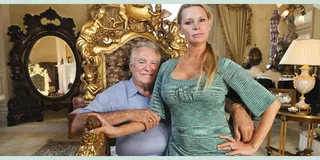
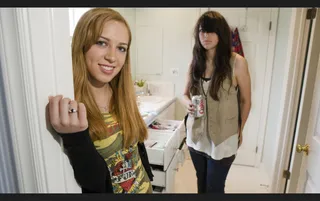
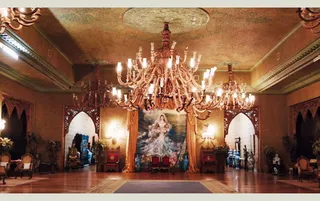
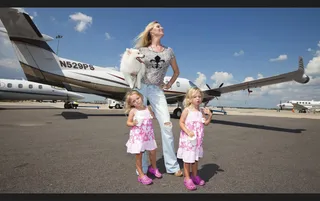


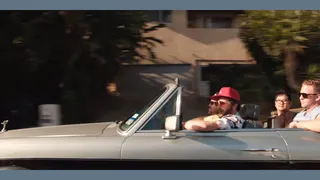

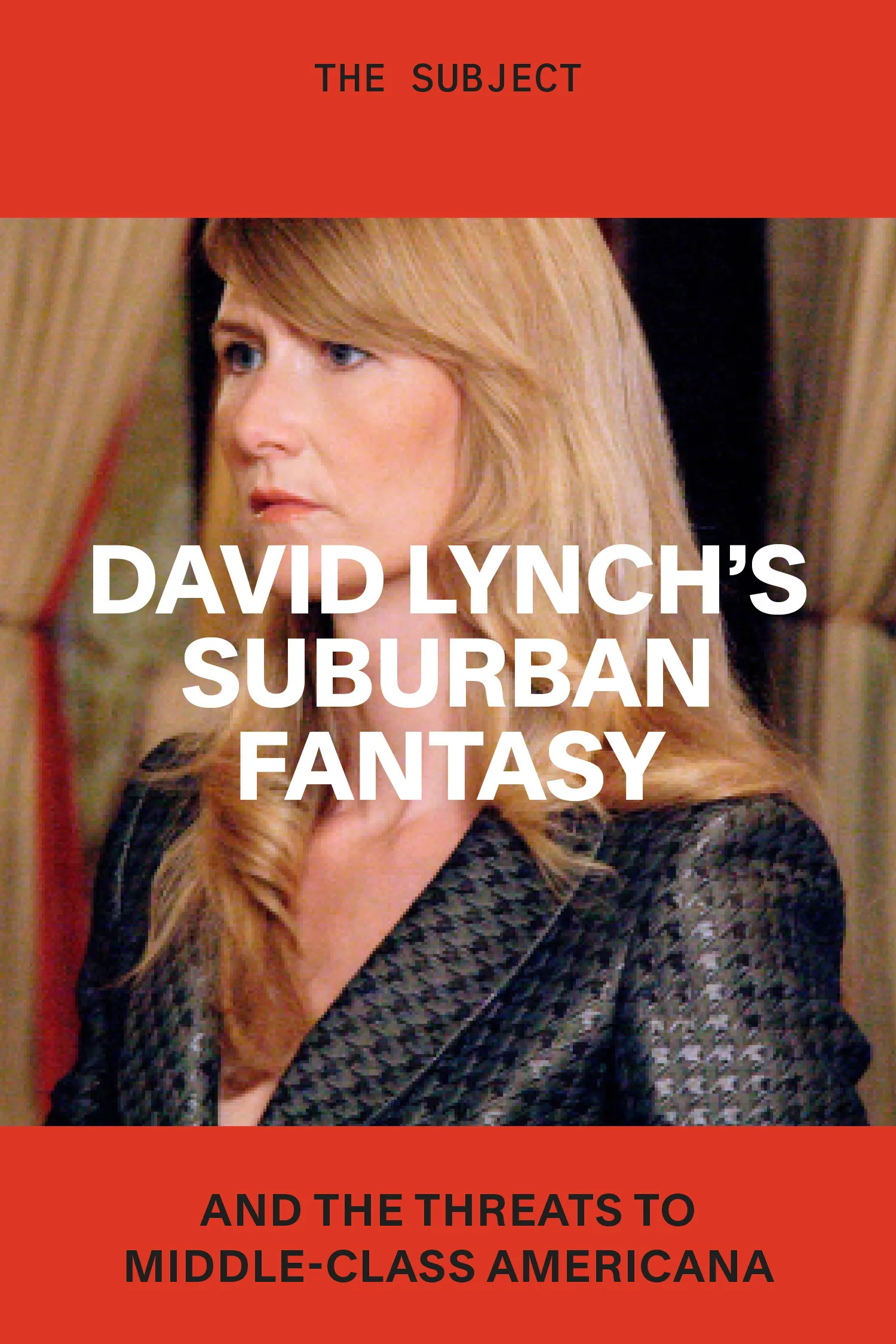
_2048x0.webp)
